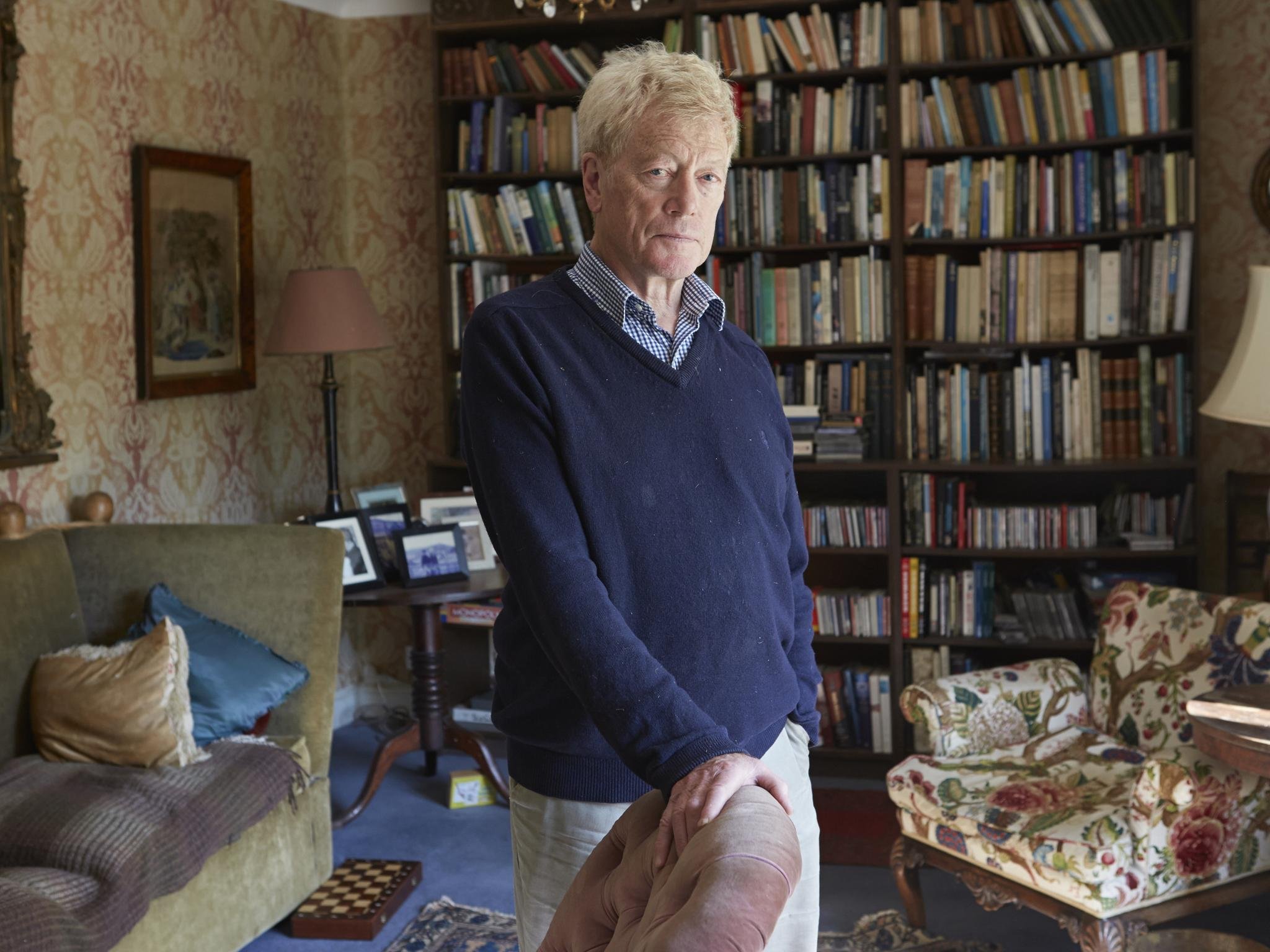A Philosophical Defence Of Judging People
Judgements are not just statements of personal preference, they’re an expression of some innate sense that one thing is genuinely better than another. Rather than you not being the person to judge, the new conventional wisdom ought to be: who are you not to judge?
In the rhetorical declaration, ‘Who am I to judge?’ rests the conventional assumption that judging and judgments themselves are inherently wrong. I am here to revive my old philosophy skills (if we can call it that?) and make the case that there is nothing wrong with judging people. On the contrary, it might be a good thing, but we’ll get to the nitty-gritty.
You heard me right, judging people is no bad thing. To defend this, I will lay out a framework that explains the natural rationale for judging, the difference between values and duties, and how it relates to our everyday lives, especially in regard to everyday behaviour, our manners, how we behave as hosts, and the way we dress.
My philosophical background
Those who know me on a more personal level, let’s say, you follow my personal Instagram (not that I hide it, it’s public) will be aware that I’m a big philosophy junkie. It is my primary passion. I studied it straight (no combined courses) at the University of Liverpool in 2015. I stay up-to-date with as much philosophy as I can cram into my life and as much as anyone else is willing to tolerate. I am especially interested in the philosophy of religion, metaphysics (consciousness and theories of reality), philosophy of science, and meta-ethics.
I was not, am not, and may never be the most stylish person you know (as evidenced below), but I am confident in my ability to practice philosophy the way it should be.
Participating in a campus debate I organised in 2017 (Is Theism More Reasonable Than Atheism?)
What is a philosophical defence?
A philosophical defence - much like a legal defence - is an argument which makes no positive case as such for a particular conclusion. In a court of law, it is the job of the prosecution to prove beyond all reasonable doubt to the satisfaction of the jury that the accused is guilty of all charges by a unanimous jury, preferably. The defence only has to show (not prove) that the arguments, reasons, and evidence put forward fail, don’t work, have flaws, don’t meet certain criteria, and so on.
The School of Athens by Raphael
I remember in one lecture when this question was put forward once by our lecturer in a Philosophy Of Religion class (What does the defence have to prove?), and after seven or eight wrong answers from everybody else, I raised my hand to say, “They don’t have to prove anything?” to which my lecturer bellowed from his six-foot-four self, “…is the right answer! I knew you wouldn’t let me down”.
There wasn’t anything very wise in my answer, but it still brings a slight smile to my face to recall that moment among many, simply because I loved my lectures and seminars so much.
Anyway, I’m about to do a mix of defending and making a positive case, where I can.
Are you saying we should start judging people as we see fit?
Not exactly. Believing that there is nothing wrong with judging people does not equate to believing you should judge people. That would be a leap from a judgment immediately into an obligation, which does not follow since judgements (value-judgements) and obligations (duties) are two different things.
In moral philosophy, we make distinctions between moral values and moral duties. For example, we all agree that giving to charity or becoming a doctor is a good thing. Still, you are not obligated to give to charity or become a doctor - that requires further qualifying justification for what one ought to do as an individual.
The question, “…we should start judging people as we see fit?” does not therefore apply because should is a prescriptive word (a normative word that tells us what to do and, what obligations we are bound by), and as I’ve explained above, we don’t need to go that far.
Why do we judge people at all?
The evolutionary answer is a rather interesting, albeit obvious one.
We are human animals. I believe we are more than just animals (we have an animal nature at least in addition to our unique human nature), but no doubt we are animals at any rate. Consequently, we behave like animals in many ways.
How do you know the orange shadow in the long grass is a tiger and not some weird accumulation of abandoned wood and sand? We need to make snap judgements to survive. This is exactly why they say first impressions count because the instinct to quickly judge is so ingrained in our natural fight or flight response.
Why do we believe it is wrong to judge people?
I believe the motivation behind this is a noble one, most of the time. You might say that it’s partly our religious inheritance from Christianity; the idea that only God is fit to be our judge.
“There is one lawgiver, who is able to save and to destroy: who art thou that judgest another?”
Sermon on the Mount by Henrik Olrik
As it happens, I believe that entirely as a Christian. However, this is within the much deeper moral realm; of humanity, of our duties towards each other. It is closely connected with my argument, but much deeper than we need to go here. I have mentioned only what I think is the motivation to illuminate our general motivations.
You might wonder by now, what has this got to do with etiquette or style yet? A great deal, as it goes, so hang in there!
The inescapable need to judge in every sphere
When it comes to more tangible aspects of human experience, such as the realm of scientific enquiry, we must, of course, use our reason to judge which theories make sense and which ones do not. Moreover, our judgement of the utility and method of science itself requires what philosophers of epistemology called justification, and such justifications can only be made outside of science through philosophy in order to see the relation between science and the world. Judgement is required again.
It is not only about scientific judgements. You might say, we make aesthetic judgements and legal judgements. The world of art and the world of courts could not do anything if no judgments were made. Regarding courts, I am not referring to just guilty or not guilty, but to the practice of law itself. Former UK Supreme Court judge Lord Jonathan Sumption said, “Law is easy, it’s the classification of the facts that is difficult”, and classifying facts appropriately is a never-ending series of judgements and distinctions.
I mention these spheres because they share the same essence of what it means to judge, even if we understand it in a more moral sense when it comes to people i.e., their behaviour, and style choices; the recognition of judgements as justified and proper is a vital first step to defend my initial thesis that there is nothing wrong with judging people.
Judging tastes in everyday life
How would anything make sense without judgements? Making a judgment is to make a distinction regardless of the context or the walk of life from which a person comes or the content of which the judgement is made. In saying that this coat is the wrong one, I’m saying there is a better, more appropriate one. That is a judgement with a goal or end in mind i.e. to not become cold in horrid weather. Immanuel Kant described these kinds of ‘ends’ as hypothetical imperatives: when the obligation to do something arises from the stated end e.g., in order to pass the exam, you ought to study hard.
In ordinary life, such judgements are indispensable, as English philosopher Roger Scruton in his book An Introduction to Beauty noted,
There are other examples that bring the point home. Consider what goes on when you lay the table for guests: you will not simply dump down the plates and cutlery anyhow. You will be motivated by a desire for things to look right–not just to yourself but also to your guests. Likewise when you dress for a party or a dance, even when you arrange the objects on your desk or tidy your bedroom in the morning: in all these cases you are striving for the right or appropriate arrangement, and this arrangement has to do with the way things look. The examples point us to ‘the aesthetics of everyday life', for a long time a neglected topic, the neglect of which explains, indeed, many of how people misunderstand architecture and design, wrongly construing as a form of high art what is more usually an exercise in discretion.
Roger Scruton at home (Scrutopia Farm)
If I were to say that somebody’s choice in music or art is not a good choice, it is in this sense as described above. Refraining from judgment doesn’t make much sense, despite conventional wisdom telling us that judging somebody’s clothing or tastes is wrong. Why? I would’ve thought there is still some ‘end’ in matters of taste, art, culture, and so on, in that purposive sense of the word. The end or purpose of good music is the music itself. To make any judgment on such things properly, we have to make a distinction in saying that this work of art or this genre of music is not quite as good as that one, that Proust is better than E.L. James. Even within set genres, not making a judgement seems impossible, be it preferring one DJ or pop singer over another, or preferring classical over modern. We all do it.
Final thoughts
Therefore, I do not believe that judging people’s choice of clothing, hairstyle, taste in art or music, or their habits in whichever way they manifest in daily life, is a bad thing. The important thing is how we judge others. Humans are animate beings with no single individual personality or tolerance perfectly duplicated in another - it’s too easy to offend people’s sensitivities. This is no surprise. It’s necessary to become tactful and pronounce judgements at the right times and for the right reasons.
Judgements are not just statements of personal preference, they’re an expression of some innate sense that one thing is genuinely better than another. Rather than you not being the person to judge, the new conventional wisdom ought to be: who are you not to judge?





